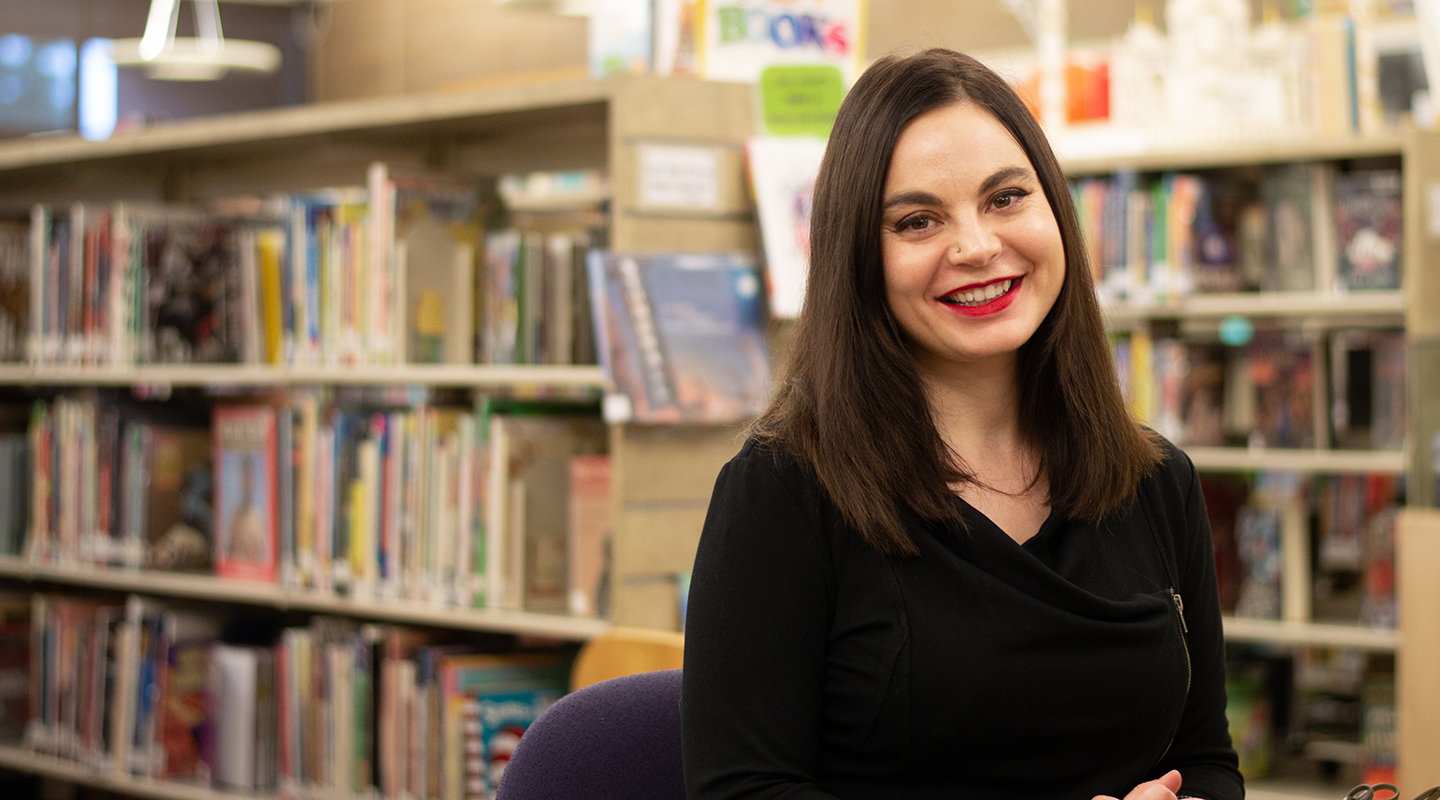When COVID-19 required people to adapt quickly, Mandi Harris was ready. After her library canceled in-person events, it took her just a day to shift programs online.
Harris, the youth services supervisor at the Coeur d’Alene Public Library, had good role models for online learning — she graduated from the UW Information School’s online Master of Library and Information Science program in 2019.
“Being an online student prepared me in ways I never could have guessed,” she said. “The professors were so capable and skilled at teaching online.”
Harris’s experience in grad school made her very comfortable adapting to a new way of offering programming for library users — and because of that, she was able to provide a bit of normalcy for children and families during a hard time.
From her first job at a library, Harris has been struck by their important role.
“I learned all the different ways a library could meet a community’s needs,” she said. “I really feel a part of the community at the library.”
Harris has found that online programs allowed her to strengthen relationships she already had and make new connections she never expected. She has attracted attendees to her storytimes from locations including Vancouver, B.C., Bangladesh and the United Kingdom. She even recorded a happy birthday message for a boy who was watching from Vancouver, at the request of his mom.
Harris also created take-home craft kits for kids, applied for and received a grant that provided 1,000 free books to kids who received free lunches during school closures, and curated a selection of kids’ books for people to browse once a portion of the library reopened.
Tyler McLane, circulation librarian at the Coeur d’Alene Library and a fellow iSchool graduate, says Harris is excellent at balancing the many parts of her job, from in-person interactions to administrative tasks, which at a larger library would be managed by several people.
McLane says that when Harris was offering in-person storytimes, they were so popular that they had to move them to a larger room. McLane admires how Harris constantly works for the community.
“She’s adapted in many ways to make sure she’s meeting the needs of as many kids in the community as she can,” he said.
In addition to her job, Harris has been working on a personal project that combines her library skills and her love of Indigenous literature. Harris, an enrolled citizen of the Cherokee Nation, knew that the Navajo Nation was hit hard by COVID-19. She joined efforts to help and used her Instagram and Twitter accounts to ask for donations to buy books by Indigenous authors. She raised more than $3,500 and sent more than 200 books, many of which were purchased at a local independent bookstore, to kids and teens in the Navajo Nation.
“I was so overwhelmed — one person sent their entire $500 tax refund,” she said. “I couldn’t have done it without so much generosity.”
A lot of Harris’s recent work caught the attention of local and regional newspapers, as well as in American Libraries, but it wasn’t the first time she was in the spotlight. Last year, her library had a problem with someone hiding books with liberal viewpoints. The story was picked up by news outlets, and Stephen Colbert learned that his book “Whose Boat is This Boat” was one of those being hidden. He did a short segment on “The Late Show” and said that he was going to send an unhideable edition.
The library staff thought it was a joke, but were entertained when a massive book showed up at the library.
Then one day, Harris came to work and her director asked, “How do you feel about reading that book for Stephen Colbert?”
Harris read the whole book for a film crew — and was on the show briefly.
“It was incredible,” she said. “Who could predict that just by doing your job as a librarian, you’d have a few seconds on Colbert?”
Pictured at top: Mandi Harris in the children's section of the Coeur d'Alene Public Library, photographed pre-pandemic. (Photo by Doug Parry)
